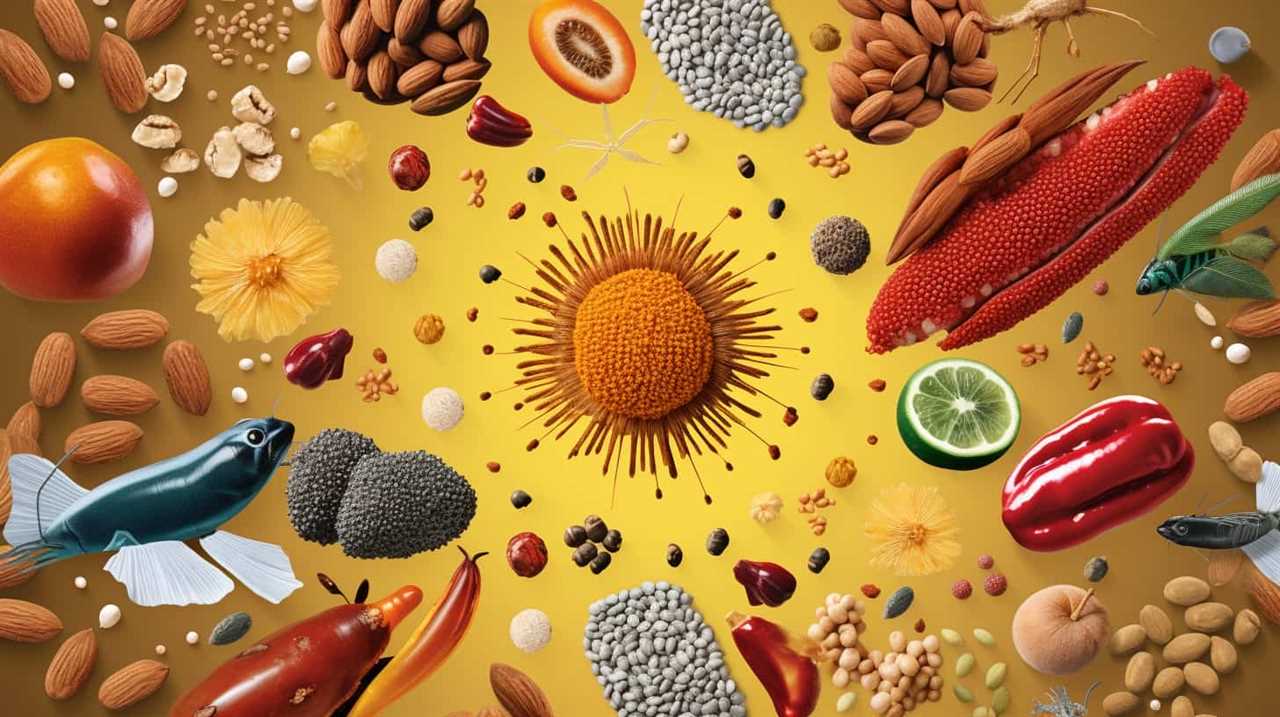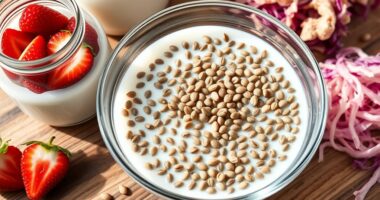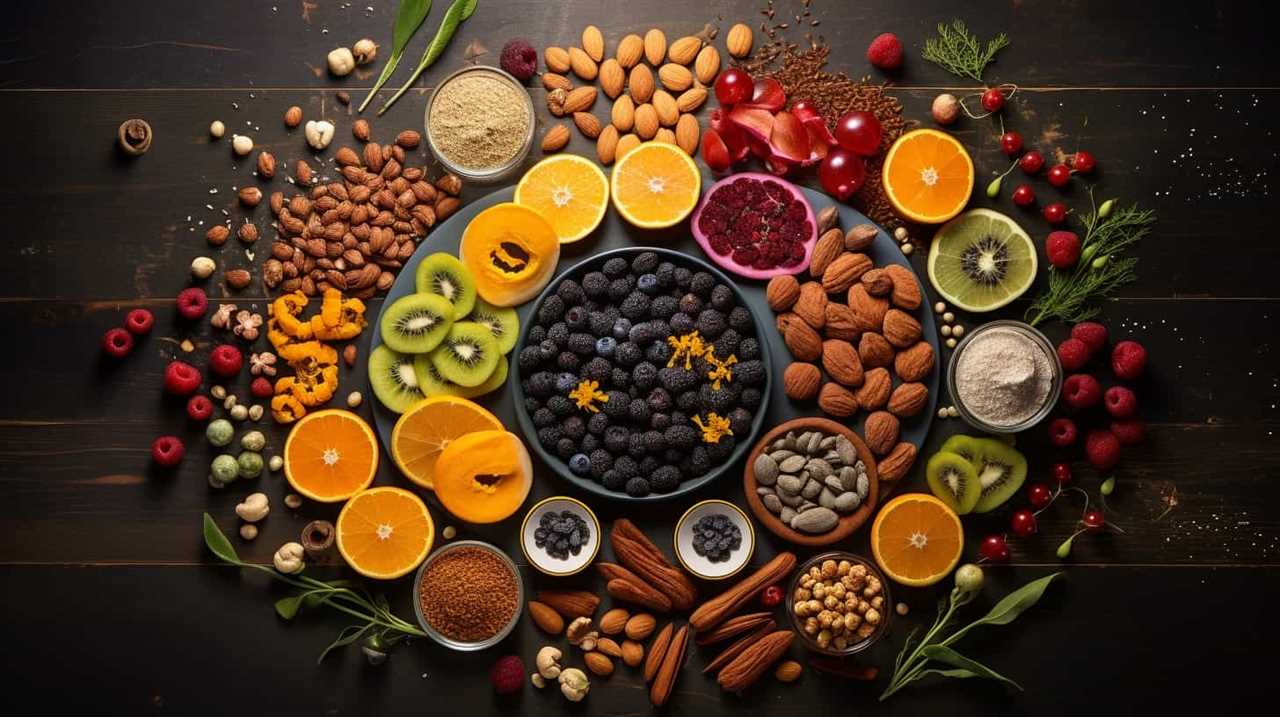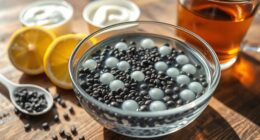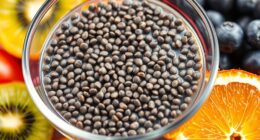Looking for natural ways to improve your digestive health? No need to search any further, we are here to help!
In this article, we’ll show you how to incorporate seeds into your diet for optimal digestion. Whether it’s chia seeds or flaxseeds, these tiny powerhouses are packed with fiber and nutrients that promote a healthy gut.
From tasty recipes to helpful tips, we’ll guide you on the path to better digestive wellness.
Let’s dive in and start nourishing our bodies from the inside out!

Key Takeaways
- Chia seeds can soothe and lubricate the digestive tract due to their gel-like substance when mixed with liquid.
- The high fiber content in chia seeds promotes regular bowel movements and adds bulk to the stool.
- Incorporating chia seeds into the diet can improve digestion, reduce bloating, and increase regularity.
- It is important to store chia seeds properly and use chia seed gel to enhance their digestive benefits.
Benefits of Chia Seeds for Digestion
Chia seeds can greatly improve our digestion when incorporated into our daily diet. These tiny seeds pack a powerful punch when it comes to promoting digestive health. One of the key benefits of chia seeds is their ability to form a gel-like substance when mixed with liquid. This gel helps to soothe and lubricate the digestive tract, making it easier for food to move through the system.
Additionally, chia seeds are rich in fiber, which adds bulk to the stool and facilitates regular bowel movements. By incorporating chia seeds into our diet, we can experience improved digestion, reduced bloating, and increased regularity.
Incorporating Chia Seeds Into Your Diet
One way to incorporate chia seeds into our diet is by adding them to our favorite recipes. Chia seeds can be a great addition to smoothies, providing an extra boost of fiber and nutrients. They can also be used to make delicious chia seed pudding, a creamy and nutritious dessert or snack option.
Here is a table showcasing two simple and tasty ways to use chia seeds in our diet:

| Recipe | Ingredients |
|---|---|
| Chia Seed Smoothie | 1 cup almond milk, 1 banana, 1 tablespoon chia seeds, 1 tablespoon honey |
| Chia Seed Pudding | 1/4 cup chia seeds, 1 cup coconut milk, 1 tablespoon maple syrup, 1/2 teaspoon vanilla extract |
To make a chia seed smoothie, simply blend all the ingredients together until smooth. For chia seed pudding, combine all the ingredients in a jar, mix well, and refrigerate overnight. In the morning, the chia seeds will have absorbed the liquid and created a pudding-like consistency.
Incorporating chia seeds into our diet can be both delicious and beneficial for our digestive health.
Chia Seed Recipes for Digestive Health
To enhance our digestive health, we can incorporate a variety of chia seed recipes into our diet. Chia seeds are a great source of fiber and omega-3 fatty acids, both of which promote a healthy gut.
Here are four delicious and nutritious chia seed recipes to try:

- Chia Seed Pudding: Mix chia seeds with your choice of milk (dairy or plant-based), sweetener, and flavorings like vanilla or cocoa powder. Let it sit overnight in the fridge for a creamy and satisfying pudding.
- Chia Seed Smoothie: Blend chia seeds with your favorite fruits, vegetables, and liquid base for a refreshing and filling smoothie. The chia seeds will add a boost of fiber and help keep you full.
- Chia Seed Energy Balls: Combine chia seeds with nut butter, honey, and other ingredients like oats or dried fruits. Roll into bite-sized balls for a healthy and portable snack.
- Chia Seed Overnight Oats: Mix chia seeds with oats, milk, and toppings like berries or nuts. Let it sit overnight in the fridge for a quick and nutritious breakfast.
Incorporating these chia seed recipes into our diet can help support a healthy digestive system and overall well-being.
Tips for Properly Using Chia Seeds
Using chia seeds correctly can greatly contribute to our digestive health. To ensure the freshness and efficacy of chia seeds, proper storage is essential. It’s recommended to store chia seeds in an airtight container, preferably in a cool, dark place such as the pantry. This helps to prevent the oxidation of the healthy fats in chia seeds, which can lead to rancidity.
Another useful tip is to make chia seed gel for easier digestion. To make the gel, simply mix 1 part chia seeds with 9 parts water and let it sit for about 15 minutes until it forms a gel-like consistency. This gel can be added to smoothies, yogurt, or used as an egg substitute in baking. The gel helps to increase the bioavailability of nutrients and aids in digestion.
Proper storage and the use of chia seed gel can enhance the digestive benefits of chia seeds.

Now, let’s explore the potential side effects of chia seeds.
Potential Side Effects of Chia Seeds
As we continue exploring the benefits of chia seeds for digestive health, it’s important to address the potential side effects associated with their consumption. While chia seeds are generally safe for most people, it’s crucial to be aware of possible allergic reactions and interactions with medications or existing health conditions.
Here are four potential side effects to consider:
- Allergic reactions: Some individuals may be allergic to chia seeds, experiencing symptoms such as itching, rash, or difficulty breathing. If you have a known allergy to other seeds, it’s advisable to consult with a healthcare professional before incorporating chia seeds into your diet.
- Medication interactions: Chia seeds have the ability to lower blood pressure and blood sugar levels. If you’re taking medications for hypertension or diabetes, it’s essential to monitor your levels closely and inform your doctor about your chia seed consumption.
- Digestive issues: Chia seeds are high in fiber, which can cause bloating, gas, or diarrhea if consumed in excessive amounts. Start with a small portion and gradually increase it to allow your body to adjust.
- Blood-thinning effects: Chia seeds contain omega-3 fatty acids, which possess mild blood-thinning properties. If you’re already taking blood-thinning medications, it’s advisable to consult with a healthcare professional before incorporating chia seeds into your diet to avoid excessive thinning of the blood.
Frequently Asked Questions
Can Chia Seeds Help With Weight Loss?
Yes, chia seeds can help with weight loss. They are a great source of omega 3 fatty acids and can be easily incorporated into a vegan diet.

Are Chia Seeds Safe for Children to Consume?
Chia seeds are considered safe for children with a recommended daily intake of 1-2 tablespoons. However, it’s important to be cautious of choking hazards and ensure they are properly hydrated.
Can Chia Seeds Improve Blood Sugar Control?
Chia seeds have been shown to improve blood sugar control by enhancing insulin sensitivity and promoting glycemic control. They can be a beneficial addition to a balanced diet for those looking to manage their blood sugar levels.
How Should Chia Seeds Be Stored to Maintain Their Freshness?
To maintain the freshness of chia seeds, store them in an airtight container in a cool, dark place. Chia seeds are packed with nutrition, including fiber and omega-3 fatty acids, which offer numerous benefits for digestive health.
Can Chia Seeds Cause Digestive Discomfort or Bloating?
Oh, the wonders of chia seeds! They’re all the rage these days. But, can they really cause digestive discomfort or bloating? Let’s dive into the world of chia seeds and their impact on our gut health.
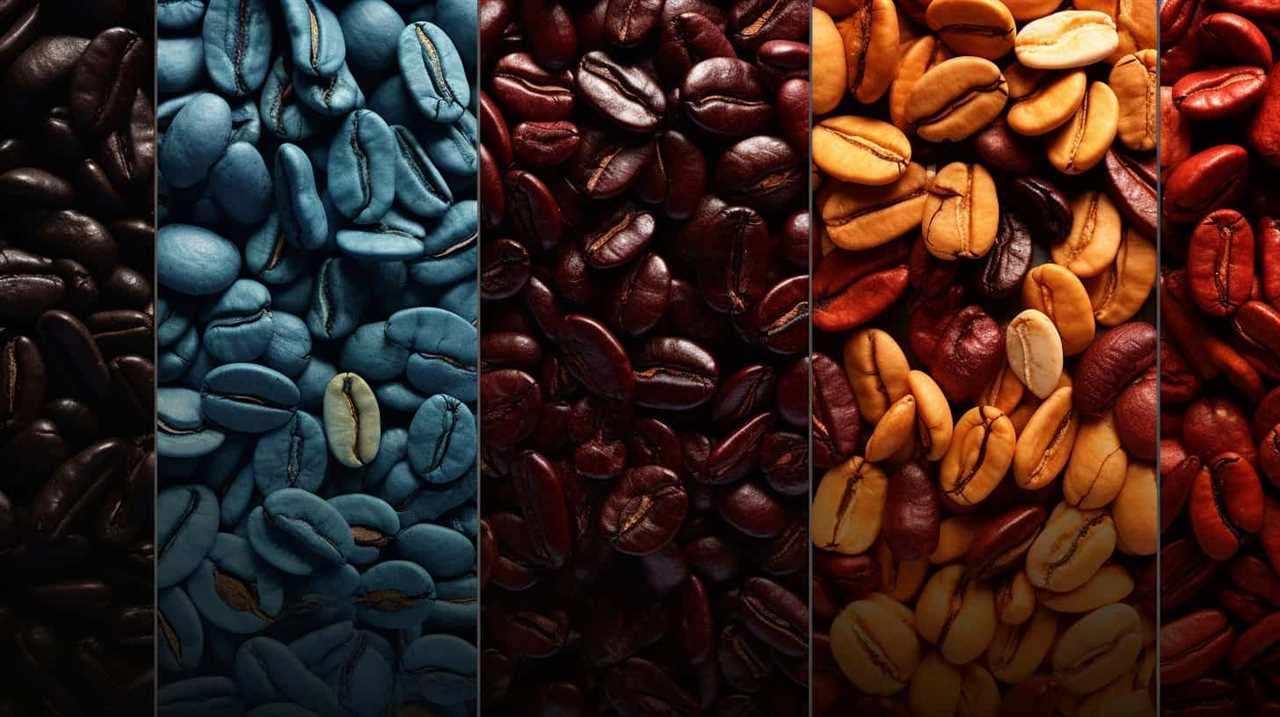
Conclusion
Incorporating chia seeds into your diet can have numerous benefits for digestive health. These tiny seeds are rich in fiber, omega-3 fatty acids, and antioxidants, all of which support a healthy gut.
By adding chia seeds to your meals or snacks, you can improve digestion, prevent constipation, and promote overall gut health.
So why wait? Grab a handful of these miraculous seeds and experience the transformative power they’ve on your digestive system. It’s like a burst of sunshine for your gut!

